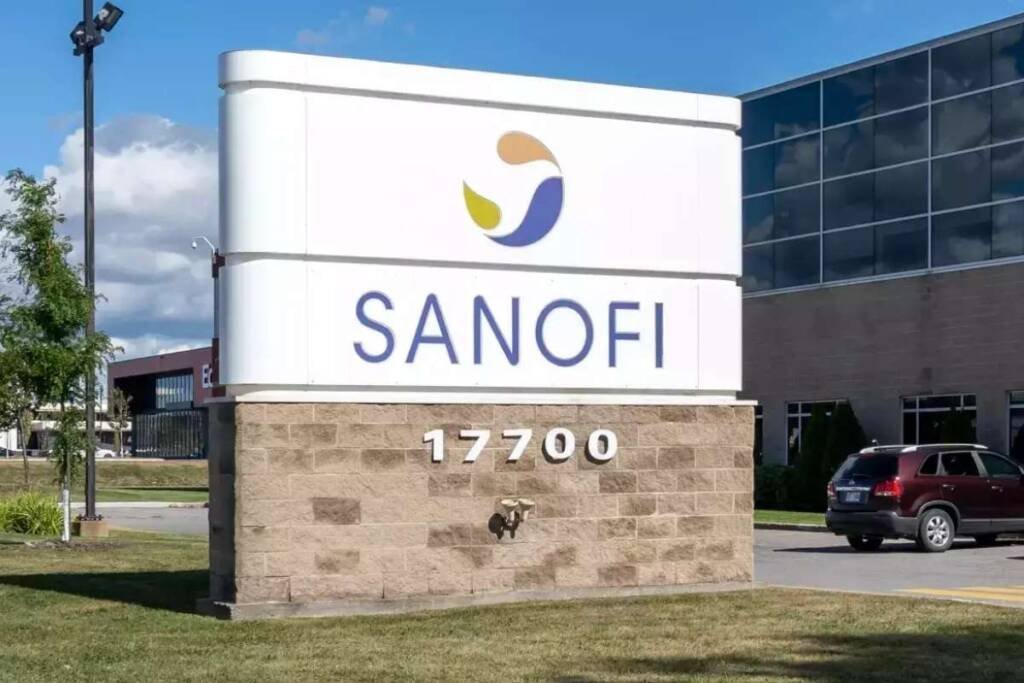Sanofi, a leading pharmaceutical company, is navigating the challenges posed by the entry of generic versions of its drug Aubagio in the U.S. market, with a similar event anticipated in Europe soon. However, the company remains optimistic about its future prospects, pinning its hopes on a trio of new medicines that hold the potential to generate at least €5 billion in peak sales over the coming years. While Aubagio’s sales experienced a significant decline due to generic competition, Sanofi’s overall sales demonstrated a promising growth rate of 3.3% in the second quarter, reaching €9.96 billion. Impressively, the company’s revenues for the first six months of 2023 amounted to €20.18 billion, reflecting strong performance across various therapeutic areas.
Sanofi’s specialty care division played a pivotal role in driving revenue growth, witnessing an impressive increase of 11.8% to €4.4 billion during the most recent quarter. This growth was primarily propelled by the success of Dupixent, a breakthrough immunology medication, which achieved €2.56 billion in sales, marking a remarkable 34.2% year-over-year increase. Another notable contributor was Sanofi’s treatment for Pompe disease, Nexviazyme, which experienced a staggering growth rate of 146.5%, bringing in €103 million in revenue.
Dupixent, in particular, has been a major success story for Sanofi, demonstrating robust growth across its various immunology indications. The medication is on track to cross the €10 billion sales threshold in 2023, with consistent growth anticipated in all five indications. Sanofi’s leadership envisions further expansion for Dupixent with an upcoming FDA decision in chronic spontaneous urticaria (CSU), expected on October 22. If approved, this could potentially open up an additional 300,000 Dupixent patients in the US, presenting a significant growth opportunity for the company.
Despite the challenges posed by the entry of Aubagio generics, Sanofi’s vaccines division performed above expectations, witnessing a growth rate of 9.1% and generating €1.2 billion in revenue. This success was attributed to strong sales of Sanofi’s COVID-19 vaccine in Europe and its polio, pertussis, and Hib (PPH) vaccine outside Europe and the US.
Sanofi’s future growth prospects are further strengthened by the launch of several new medicines. Beyfortus, an RSV prevention antibody for infants, recently secured FDA approval and is set to enter the market later this year. Additionally, the company is progressing with the launches of Altuviiio, a hemophilia A therapy, and Tzield, designed to delay the onset of stage 3 Type 1 diabetes. The potential of this trio of new medicines is considerable, with Sanofi’s CEO, Paul Hudson, estimating peak sales of up to €5 billion. This year alone, the triumvirate could contribute around €400 million in revenue.
Sanofi’s positive outlook is supported by a comprehensive strategy that focuses on advancing its product pipeline, expanding its presence in the immunology market with Dupixent, and driving growth in diverse therapeutic areas. The company has raised its guidance for the year, expecting earnings per share to grow in the mid-single-digit percentage range, with the upgrade factoring in an anticipated €400 million of “one-off” COVID vaccine revenues in the latter half of the year.
According to Sanofi’s vaccines chief, Triomphe, the launch of Beyfortus, an RSV prophylactic, is progressing as planned and is scheduled for this fall. The antibody will undergo review by the CDC’s Advisory Committee on Immunization Practices (ACIP) next week, and Sanofi is hopeful to secure inclusion in the agency’s Vaccines for Children (VFC) program.
Amidst the challenges and opportunities in the pharmaceutical landscape, Sanofi is positioning itself for sustained growth and continued success in delivering innovative healthcare solutions to patients worldwide.





























